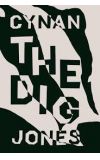
16 Jan 2014 01:48:26
The Dig turns the reader into a helpless animal; transfixed, waiting for that blow to the skull. The first, unexpected emotional whump is actually the worst, but the story that unfolds from this shock is like a badger bait: you can root for the underdog but the game is rigged – there can only ever be one outcome.
The illicit "sport" of digging badgers and baiting them with dogs is not much covered in literature, apart from a brilliant poem by John Clare in the 1830s and a brutal 20th-century account by a jaded, complicit Henry Williamson, author of Tarka the Otter. Clare wrote about it superbly, but it would be hard to imagine a contemporary account more vivid and frightening than Jones's, which unflinchingly sheds light on this anachronistic, stubbornly persistent subculture.
A gawky adolescent goes on his first dig and watches the steam comes off the exhausted terriers, Jip and Messie, when they are retrieved from the badger's sett, their wounds spilling fresh blood, "a synthetic colour against the dun green slope".
It is not merely violence that is passed from father to son in The Dig. Daniel's struggle succinctly reveals the crisis in modern farming and the suffering endured by young people still trying to make a living from the land. Ever since Thomas Hardy, writers have wrestled with the challenge of convincingly depicting the relentless hardship of country life. Despite running a wine and flower shop in west Wales rather than a hill farm, Jones matches the achievements of Ross Raisin in God's Own Country, showing us the "stupefying tiredness" of farm labour and the close relationship this creates with animals and the land.
The nocturnal Wales of The Dig can appear hallucinogenic and timeless, with just a quad bike here and a farm grant there to place it in this century, but it is also completely authentic. I have sat in court with badger baiters, in kitchens with farmers and admired the "unnatural luminosity" of gorse flowers at night, and there is not one false note in Jones's descriptions. The occasional single-line paragraph – "The night rippled with stillness" – can be rather self-conscious, but more typical is the evocative rendering of a sheep shed, which, filled with lambing ewes, is "maternal and quiet".
Jones won a Betty Trask award for his first novel, The Long Dry, and The Dig has already garnered some hefty literary endorsements proclaiming its supposed muscularity and inviting comparisons with Hemingway and Cormac McCarthy. Jones's spare prose is actually rather reminiscent of early Ian McEwan, although several similes are more adventurous: the badger digger so hefty that when he climbs from his van "it lifted and relaxed like a child relieved of the momentary fear of being hit"; his house surrounded by dilapidated kennels and broken machinery, "the bodies of cars like some disassembled ghost train littering the field".
For all this manliness, The Dig is a tender and sensuous depiction of the deep connections both good and bad people have with the earth and its animals. Daniel finds "an understood geography, familiar and mammal" in lambing, and solace in a land that doesn't forget a loved one. The badger digger, too, has an intimate relationship with his dogs and the countryside he maps by its setts.
There is a terrible futility about each trapped life in this book – the stunned, tortured badger, the struggling farmer, and even the badger digger, who persists with his sadistic crimes even though he suspects that the police will catch him sooner rather than later. When Daniel struggles to rescue a dying lamb, he remembers his pragmatic farmer father telling him that sometimes he must choose between a quick misery or a slow misery. His father is wrong: Daniel cannot choose, and his misery is both quick and slow. Death may be everywhere but The Dig is brilliantly alive; a profound, powerful and utterly absorbing portrayal of a subterranean rural world.

